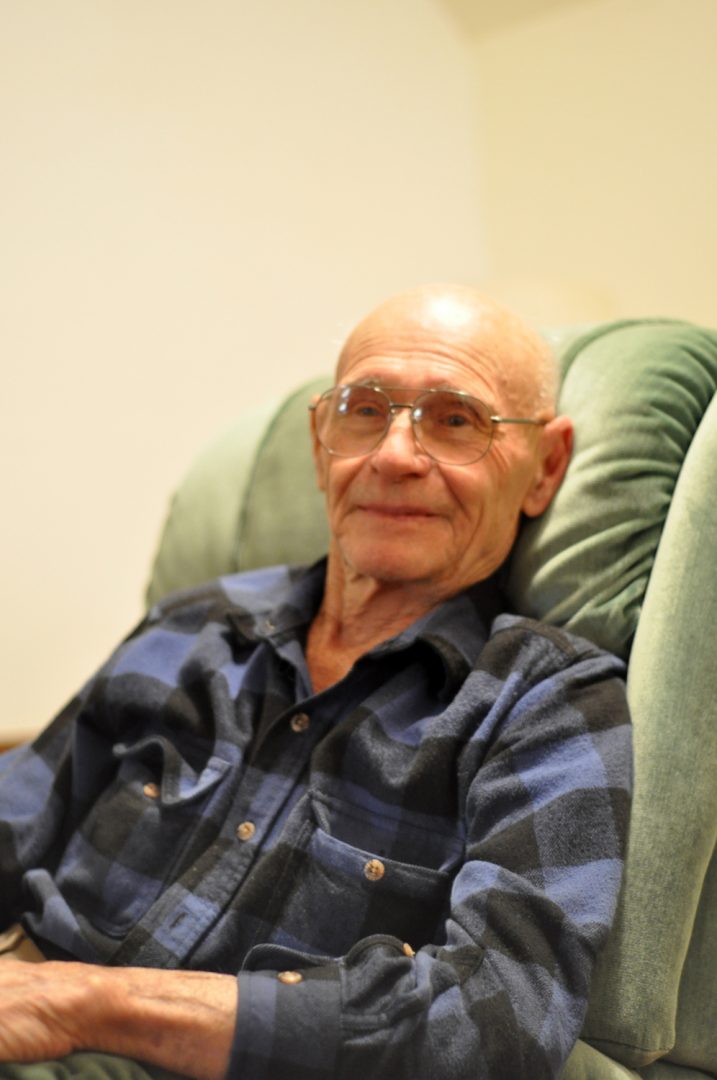The Desert Grandfather I Met Fifteen Years Ago
March 28, 2012
My grandfather died of cancer this weekend in Arizona. I didn’t grow up around him; I didn’t even meet him until I was seven. This may seem strange, but my own father was adopted and didn’t learn of his biological father until 1997. Although I didn’t know my grandfather until then, I probably spoke to him more than my other relatives as an adult.

I didn’t really grow up around any of my extended family, so I only saw my relatives twice a year at most. When you’re little, those vacations lasting 10 days in a year of 365 often carry the weight of dental checkups as the adults look you over; someone may comment on how large your teeth are coming in, and your mom makes a joke about you eating carrots. You stand there with bony knees and say that you do like eating carrots, and everyone chuckles, and you smile with dopey pride, unaware that your sincerity is amusing.
The adults are nice, but you’re shy each time you meet them, since they don’t know the names of your new friends, and you don’t remember where the bathroom is in their home. Often, you wonder why it takes everyone so long to drink coffee after dinner. They tell stories they’ve forgotten individually, so they take turns piecing them back together between each nostalgic sip. You laugh at a detail that was not the punch line, and someone tussles your hair absent-mindedly. You aren’t old enough to have any stories as long as theirs, so you’re mostly quiet.
The first time I met my grandfather, my family drove across the desert from west Texas to central Arizona. He lived in a home he had built into the side of a hill. There was a saguaro cactus on his dirt-covered roof, and green artificial turf carpeting in the living room. He had acres and acres of desert, sprinkled with construction machinery and roads he had carved through the rocks.
A day after meeting him, I went exploring the property. I soon found myself standing on a rock over a rattlesnake den, hearing the hisses and warnings of their angry tails. I called for help, and he ran over with a shovel. He grabbed my arm and pulled me off the rock, then flipped it over and cut their heads off. It seemed my newly discovered grandfather was a madman.
He was a storyteller. He spoke fast through loose dentures, with the voice of an older man who has learned that people usually won’t listen to every word you say anyway, so just go for it. I was at the age when I was becoming aware of possessing a sense of humor, something that is often intertwined with fledgling confidence and an ability to respond to questions with full sentences. I met this man at the same time as my parents met him, so for the first time, we could all be a little shy together. They lacked the advantage of years of familiarity that they had with our other relatives, and I followed my new grandfather’s winding tales more closely with my young ears than they could.
Through the next 15 years, I saw him more often than my other relatives, who lived further away in California and Mexico, making cheaper road trips less feasible for everyone. Sometimes my grandfather would call and say he’d be visiting in seven hours.
He didn’t know me as a baby, which meant that I didn’t have to feel guilty for getting older around him. I think that’s one of the hardest things about growing up. Your parents remember when you were just getting started, so sometimes they still view your behavior as an extension of the choices their growing five-year-old is making. On the other hand, my grandfather often looked at me and wondered why I wasn’t a man yet.
When he was diagnosed with colon cancer, I called him and spoke to him, not about family or the specifics of his cancer or anything we already knew about each other, but just as men. We just spoke about life. He said he was okay with dying, because he had done enough in his life to feel like he had done enough.
He never went to college, but he thought he would have been sharp enough to go if he could sit through it. He said college was probably for dummies, but maybe I was one of those dummies who could sit through it. People were different, so as long as they did what they wanted, that was probably what they should be doing. It was probably the closest he ever came to approving of any kind of school. He said it didn’t really matter what we did in the long run, as long as we felt like we did something.
Maybe he wasn’t such a madman after all.











